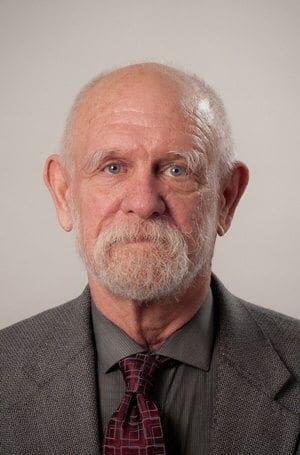Widely influential algebraic topologist and homotopy theorist Jack Morava, professor in the Department of Mathematics at Johns Hopkins University for nearly four decades, died in Boston on Aug. 1 following a brief illness. He was 80.

Image caption: Jack Morava
A brilliant and innovative thinker whose mind operated in leaps and bounds, Morava was renowned for his cross-cutting ideas that bridged mathematical specialties. Considered a "mathematician's mathematician," he was often described as being ahead of his time. Morava frequently made unlikely connections among disparate concepts, opening new areas of inquiry and inspiring students and colleagues to explore new ideas.
"Mathematically, Jack was—for many of my generation—our guru," said W. Stephen Wilson, professor emeritus in the math department. "Today, multiple generations are working on math that can easily be traced either directly or indirectly to Jack's ideas and influence. Today, we have thriving interactions between algebraic topology, number theory, and algebraic geometry. Jack was decades ahead of his time doing this already in the late '60s and early '70s."
While mathematicians continue to explore the uncharted terrain Morava suggested, colleagues and students also continue to appreciate him as down to earth, generous, charming, and broadly intellectually curious.
"Jack was someone who knew about every eccentric corner of the world and would bring it to you on a silver platter," Wilson said.
Jonathan Beardsley, who earned his PhD under Morava in 2016, describes him as "spiritually generous" and says he would not have made it through graduate school without an advisor like him.
"Jack was a human first and a mathematician second, but still managed to be a mathematician of historic importance," said Beardsley, now assistant professor of mathematics at the University of Nevada, Reno. "Jack was one of the few people in my academic life who frequently asked about how I was doing, and wasn't referring to my thesis or my job search or my conference attendance. He was asking how I was doing, as a human."
In a series of unpublished preprints written in the 1970s, Morava introduced an infinite sequence of complex oriented generalized cohomology theories now known as Morava K-theory. These form the fundamental building blocks of chromatic homotopy theory as the "fields" in the category of ring spectra, according to an announcement of his death on the department website. Later in his career, he applied cobordism categories to mathematical physics.
"It's impossible to overstate how sweet and warm Jack was," said David Savitt, professor and chair of the department. "While chatting during my job interview here, we discovered that my best friend from childhood was the daughter of someone he knew well—at which point Jack high-fived me. It's hard to imagine anyone but Jack high-fiving a candidate during an interview."
Besides connecting mathematical concepts, Morava connected mathematicians themselves through his prolific emails. They felt his genuine care for them. His was the kind of presence that generated a sense of elevation among those around him.
There was also his celebrated sense of humor, including the time in 1971 when he was stopped by New York City police while wearing a gorilla suit he'd rented for Halloween.
A Texas native, Morava earned a PhD at Rice University in 1968. He spent time at Princeton's Institute for Advanced Study, Columbia University, the Steklov Institute in Moscow, the Tata Institute of Fundamental Research in Bombay, SUNY Stony Brook, and the University of Washington before arriving at Johns Hopkins in 1979. He was named professor in 1982 and retired in 2018. From 2000 to 2003, he directed Hopkins' Japan-U.S. Mathematics Institute.
Posted in University News
Tagged mathematics, obituaries







